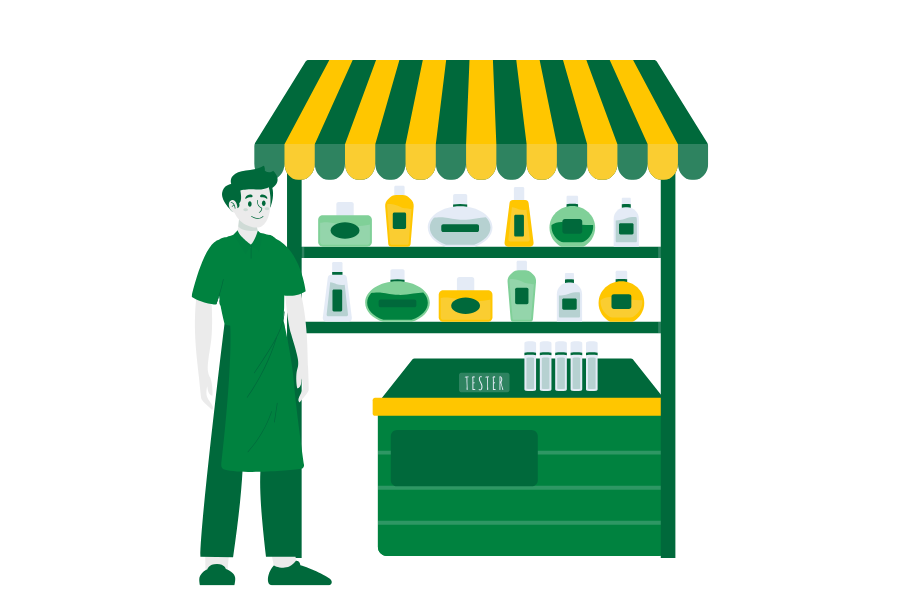Pop-Up Shop vs Permanent Store: Which Is Right for You?
Deciding between a pop-up shop and a permanent retail location in the US depends on your business goals, budget, and growth strategy. Both approaches have advantages, and understanding the differences can help you make an informed choice.
Key Differences Between Pop-Up Shops and Permanent Stores
| Aspect | Pop-Up Shop | Permanent Store |
|---|---|---|
| Cost | Lower startup costs with short-term leases and minimal build-out expenses. | High upfront costs including long-term leases, store build-out, and operational expenses. |
| Commitment | Temporary; lasts from days to months, offering flexibility. | Long-term; usually years of lease contracts. |
| Risk Level | Lower financial risk due to limited investment duration. | Higher risk due to larger initial investment and ongoing expenses. |
| Market Testing | Ideal for testing new products, markets, or concepts quickly. | Less flexible; better for established products. |
| Brand Presence | Creates urgency and excitement; good for brand awareness. | Builds steady, permanent brand presence. |
| Sales Volume | Suited for limited-time sales and events; can spike during short bursts. | Supports consistent, ongoing sales and customer loyalty. |
| Customer Engagement | High engagement through direct interaction during limited time. | Ongoing customer relationships and community presence. |
| Location Flexibility | Can move to different locations to capture foot traffic. | Fixed location with benefits of local customer familiarity. |
| Operational Complexity | Simpler operations and staffing for short terms. | More complex management with consistent staffing, inventory, and compliance. |
| Legal & Licensing | Requires temporary permits and licenses; simpler regulatory demands. | Requires full business licensing, zoning compliance, and ongoing legal adherence. |

Permits and Licenses Needed for Pop-Up Shops
Even temporary retail operations require compliance with local laws. Typical requirements include:
-
Temporary Business License – Issued by city or county for short-term operations.
-
Sales Tax Permit – Required if selling taxable goods.
-
Health Permits – Necessary for food or beverage pop-ups.
-
Event or Public Space Permits – Needed if operating in public areas or malls.
Which Should You Choose?
Pop-Up Shop is best if you:
-
Want to test products with minimal financial risk.
-
Aim to create buzz and exclusive experiences.
-
Have limited startup capital.
-
Need flexible, short-term presence in multiple locations.
-
Want to complement an online business with physical touchpoints.
Permanent Store is best if you:
-
Have a proven product-market fit and stable customer base.
-
Are ready to commit significant capital and time.
-
Want to build long-term brand presence and community ties.
-
Need consistent sales with reliable in-person customer service.
-
Plan expansion with multiple fixed locations.
Many businesses start with pop-up shops to test markets and generate interest, then transition to permanent stores as growth stabilizes.
Summary
For US entrepreneurs, choosing between a pop-up shop and a permanent store depends on risk tolerance, budget, and business objectives. Pop-ups offer flexibility, lower startup costs, and high customer engagement, while permanent stores provide stability, consistent revenue, and long-term brand presence. Understanding the legal requirements, including permits and licenses, ensures your business operates smoothly and remains compliant.
Your Books, Automated. Your Questions, Answered.
Manual bookkeeping eats into time you could spend growing your business. Traditional accounting services charge more but still need constant guidance. There’s a better way.
Counto’s modern accounting solution combines AI that learns your business with expert human oversight. Once our system understands your patterns, it handles daily bookkeeping automatically. Professional accountants review everything for accuracy, and you get instant access to your dedicated Customer Success Manager via SMS or phone—no more waiting for answers about your finances.
Join forward-thinking businesses who’ve upgraded to intelligent accounting that adapts to you, not the other way around. Ready for accounting that actually gets your business? Chat with us now, email [email protected], or use our contact form.
Here are some articles you might find helpful:







